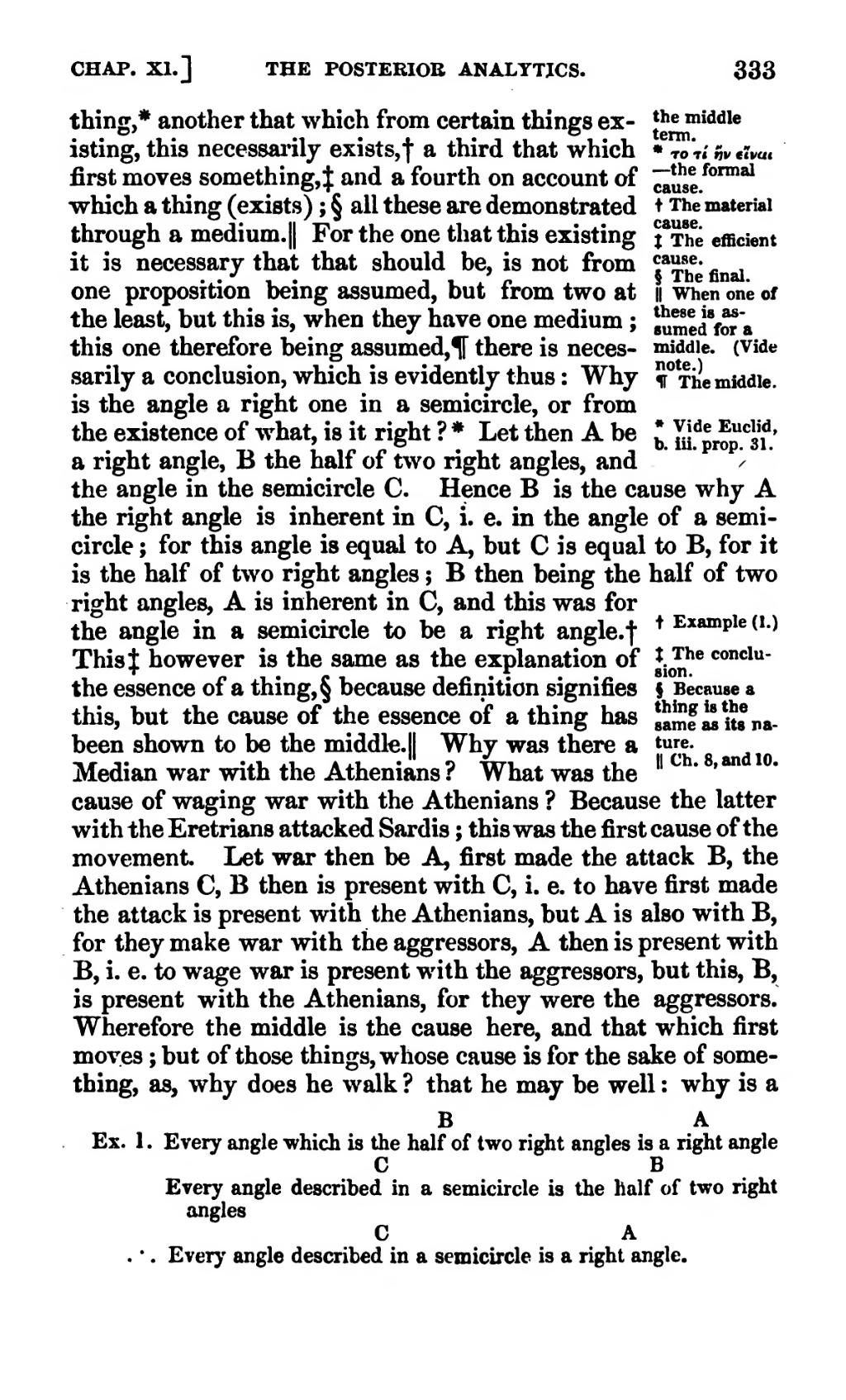thing, another that which from certain things existing, this necessarily exists, a third that which first moves something, and a fourth on account of which a thing (exists); all these are demonstrated through a medium. For the one that this existing it is necessary that that should be, is not from one proposition being assumed, but from two at the least, but this is, when they have one medium; this one therefore being assumed, there is necessarily a conclusion, which is evidently thus: Why is the angle a right one in a semicircle, or from the existence of what, is it right? Let then A be a right angle, B the half of two right angles, and the angle in the semicircle C. Hence B is the cause why A the right angle is inherent in C, i. e. in the angle of a semicircle; for this angle is equal to A, but C is equal to B, for it is the half of two right angles; B then being the half of two right angles, A is inherent in C, and this was for the angle in a semicircle to be a right angle. This however is the same as the explanation of the essence of a thing, because definition signifies this, but the cause of the essence of a thing has been shown to be the middle. Why was there a Median war with the Athenians? What was the cause of waging war with the Athenians? Because the latter with the Eretrians attacked Sardis; this was the first cause of the movement. Let war then be A, first made the attack B, the Athenians C, B then is present with C, i.e. to have first made the attack is present with the Athenians, but A is also with B, for they make war with the aggressors, A then is present with B, i. e. to wage war is present with the aggressors, but this, B, is present with the Athenians, for they were the aggressors. Wherefore the middle is the cause here, and that which first moves; but of those things, whose cause is for the sake of something, as, why does he walk? that he may be well; why is a
